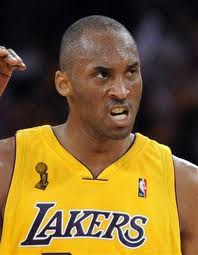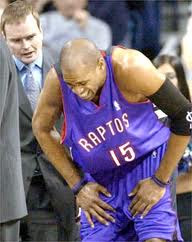BY SEAN DEL BEN, MKIN, CSCS, FMS LVL.2, FRC
Develop mental toughness in your athletes’.
The amount of work that an athlete performs directly relates to how strong and conditioned they will be for their respective sport. This work also related to how much mental toughness they will possess. Countless hours of hard training in the gym will show an athlete the success they can achieve by setting and achieving long and short-term goals.
Mental toughness is doing whatever is necessary to get the job done. This includes handling the demands of a tough workout and withstanding pain. An athlete who knows they have fought through a painstaking training session will possess a self-belief that they can fight through the physical pain in the fourth quarter or third period.
In Mind Gym (2001), Gary Mack has listed seven components of mental toughness. These are competitiveness, confidence, control, committed, composure, courage, and consistency. Some of these components can be integrated by the strength & conditioning coach when training their athletes.
Strength & conditioning coaches should look for ways of integrating these seven components of mental toughness into the training regimes of their athletes with the purpose of further preparing them for the mental rigors of their respective sport.
COMPETITIVENESS
Competitiveness can be enhanced by having the athlete train alongside an athlete of similar athletic ability. By adding competition, you are developing the athlete’s coping skills, perseverance, and exposing them to their ‘next gear’ by increasing their effort expenditure. Competition can be created by training in groups and by enforcing a benchmark performance goal that they must meet.
CONFIDENCE
Confidence that one can withstand the physical pain associated with sports is of utmost importance. By putting an athlete through an intense training session, you are enhancing their mental self-concept. In short, a strong mental self-concept is the unshakeable belief that they possess unique qualities and abilities which make them better than their opponents (Crust, 2007).
COMMITMENT
Commitment is developed by putting in hours of hard training. By setting a goal in the off-season and putting in the time and effort to accomplish these goals, the athlete will develop a work ethic and learn of the sacrifice necessary to accomplish their hopes and dreams. This translates directly into how they will approach goal setting in their sport. Furthermore, the grueling process of dedicated off-season training will have the athlete confident that they are prepared, and aware of the commitment and dedication required for success.
An athlete who’s committed to completing tough off-season goals is more likely to have the courage required to become great (think Kobe Bryant).
COURAGE
An athlete with courage is an athlete who is willing to take a risk without fear of failure. Many athletes make it to the elite level. However, they don’t have the courage to take their game to the next level (think Vince Carter). These athletes are content with what they’ve achieved or are afraid of the potentially grueling process of becoming great. An athlete without courage will not take off-season training seriously. They will not put in the optional workouts, or commit themselves to a strict diet, for example.
“It takes courage to grow up and reach your full potential” – Paul Stoltz.
The role of the strength & conditioning coach is to find a way to spark motivation within the athlete to become as passionate about the field as you are. Ensure results are seen in some facet of their physical performance. Athletes will see themselves making strides in their performance as a result of working hard. Therefore, they will have less fear of failure and will be driven for greater results.
COMPOSURE
Composure is having the ability to handle pressure and deal with adversity. As such, this trait is required when experiencing high levels of pressure, physical pain, playing from behind, and poor playing conditions. These factors can easily be integrated into a training session. In a team setting, tell your athletes that if they miss a free throw, the entire team is running 10 more sprints. On top of this, have the athlete shoot the free throw immediately after having already run 10 sprints.
As Kobe Bryant is quoted as saying: “Everything negative – pressure, challenges, is all an opportunity for me to rise.”
CONSISTENCY
Consistency of performance can be developed via tough training sessions. Athletes need to learn to put in the same effort each and every training session. For the reason that this level of consistency is likely to translate similarly to the consistency of performance in their sport. Often, consistency translates to the ability to do the 1%’ers every game. These are the hustle plays that require effort and don’t always show up in the box score. In strength & conditioning, this is the ability to focus on technique and continually perform the small details that will help the athlete move past their strength plateaus.
Are you maintaining a stable thoracic spine by envisioning yourself bending the bar inwards? Are you ensuring proper breathing patterns into the diaphragm, throughout the lift? Ensure that adherence to these cues (and others) does not dissolve as fatigue sets in.
Hopefully, this article has increased your perception of the role you may play in developing mental toughness within your athletes.
If you are the type of person who gets motivated by training with others, then see our Athletic Group Training Class or our Semi-private training sessions.


